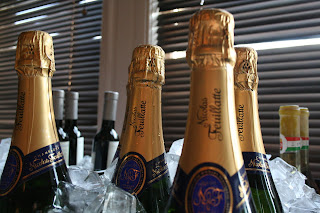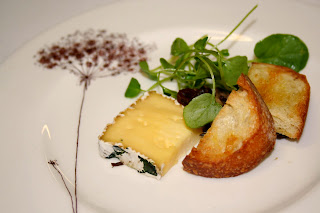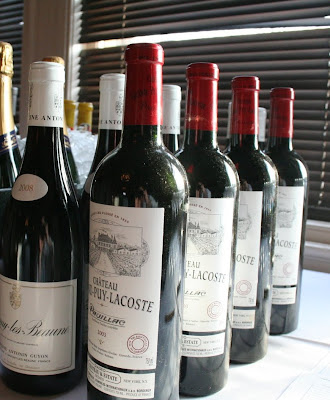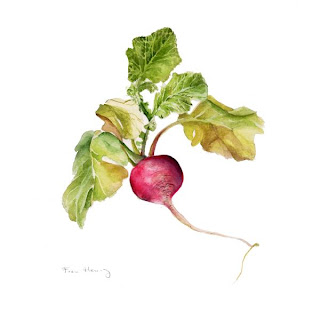I've long believed that the adage about the customer always being right was never intended for restaurants. It is meant (and I suppose true) for the service and retail industries, instead. The main difference here, and certainly at Chef Trotter's level, is that you are dealing with the culinary arts. At this level of restaurant (and those like it), you are experiencing food prepared by someone who has devoted their life to educating their palette, developing their craft and creating unique meals to be shared unspoiled.
As I have discovered over the years, those with power like to exercise it to feel the full rush of what being powerful means. Customers who like to flex that muscle and reconstruct a dish, substitute, omit and tailor a chef's menu to their liking are not, I repeat, NOT, getting what the chef intended, but some bastardized iteration that is akin to letting some unskilled orderly handle your delicate open-heart surgery. Like giving your Mercedes to a hack mechanic and asking him to pimp it out and paint it cherry red. Like ordering a diet coke with your breast of pheasant with morels and truffle. There are those out there who disagree, and quickly bash chefs as egotists who are inflexible snots, simply because they believe they have the right to get what they're paying for. I argue that those chefs have the right not to serve you, either.
Charlie Trotter is famous (among all his skills) for being the first chef to go on record as saying that in order to perfect your product, service and brand- it's necessary to fire customers. Get rid of those whose expectations don't meet your standards and focus on the ones who do. At some point, the thinking goes, there will be enough customers who, not out of misplaced reverence, but respect for the chef and his vision, will frequent an establishment because of that vision, not in spite of it. That was over 15 years ago.
| A selection of amuse bouche from Trotter's September, 2000 |
If you care to read a bit more about Chef Trotter and his rare breed of customer service, click on the quote above that will take you to a recent article on the 51 year old chef and why he stands out (to some) as a genius and to others, a lunatic tyrant.
Full disclosure: I am a huge fan of Trotter's philosophy, his cooking, his books and accomplishments. His style of cooking and commitment to excellence have shaped me and help me become the chef I am today. I spent a week in his kitchen in September of 2000 absorbing, tasting, cooking and finally, partaking of his Grand Tasting menu. It was, quite simply, one of the most unique experiences I've had in my career.
| The staff of Trotter's circa 2000. I am located dead center, (back) with the Cheshire grin next to my future buddy, and Top Chef Season 2 contestant, Otto Borsich. |
The great artists are rarely understood in their time, and much of the article in The Times attests to that in its myopic view of Trotter as of late. It attempts to psychoanalyze why Trotter is not in the press more or hasn't expanded his brand into multi-unit prostitution, or why he has failed in his attempts to do so. In each of these scenarios where he tried to recreate the level of excellence at his restaurant in Chicago, there were contributing factors that didn't meet the standard of the original, and subsequently he pulled the plug. While some call that failure, others would call it integrity.
 |
| The copper pots that distinguish the tiny, talented kitchen. |
As far as Grant Achatz is concerned, I have immense respect for him. He is cut from the same cloth as Trotter, Adria and Keller. Yet, I can't help thinking his publisher and/or partner pushed to create controversy to sell more books with all the volatile portions dedicated to his pent up angst toward Trotter- especially now, since he appears to have "a cordial if not close relationship" with him. But then, FUCT (F*$% You Charlie Trotter!, the acronym supposedly adopted by Achatz and his partner to emote his feelings about his post-Trotter's tenure) is pretty harsh, no matter how you slice it, and I believe somewhat unprecedented among chefs of such stature. Achatz maintains it was included in the book to later draw a parallel between the two chefs and their shared commitment to perfection. Still, the Golden Rule seems more apt among professionals.
 |
| Van Gogh's The Golden Rule |
Whatever your view, I believe there can still be room for an innovative artist and an artistic innovator in the same arena.




















